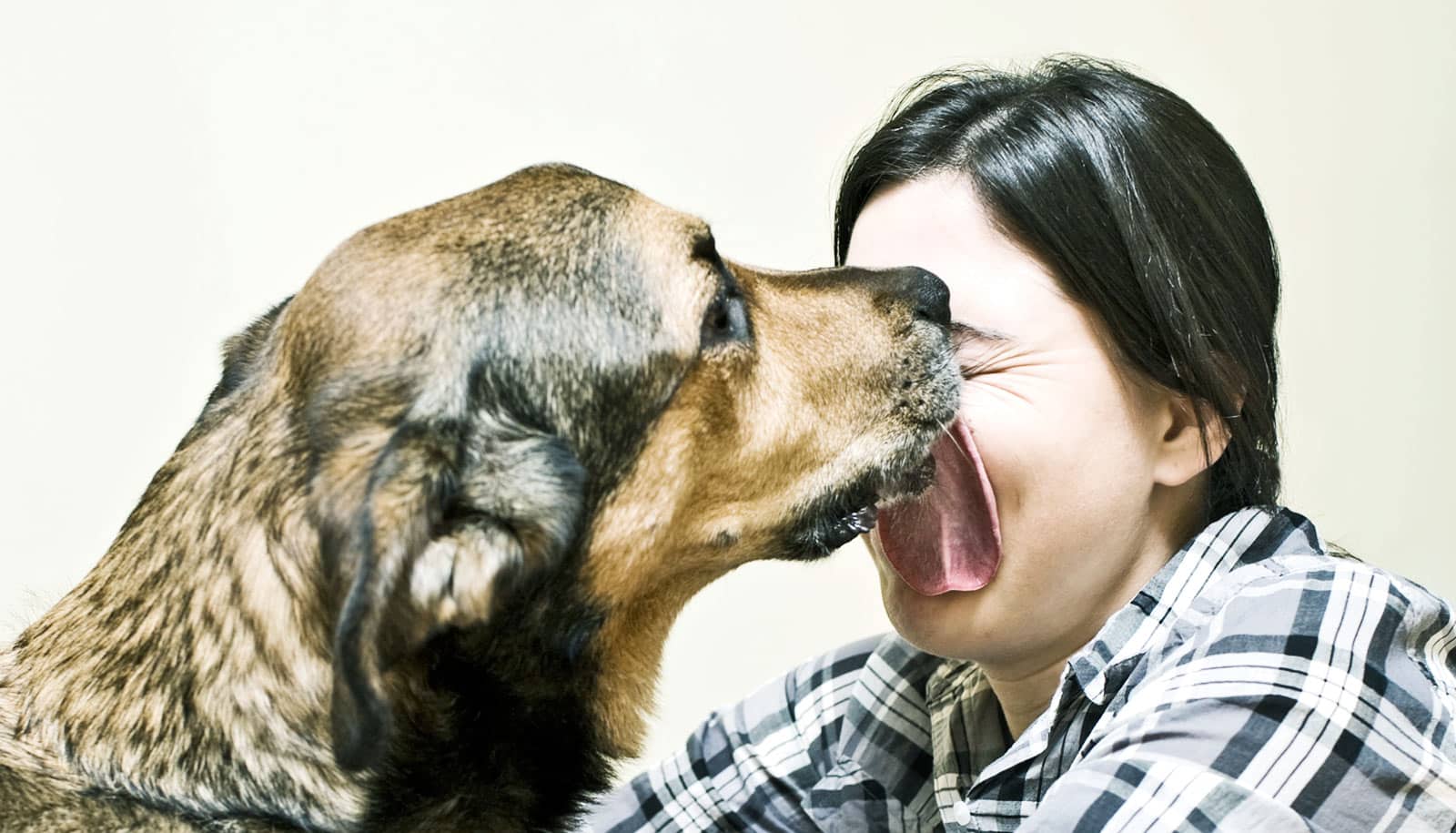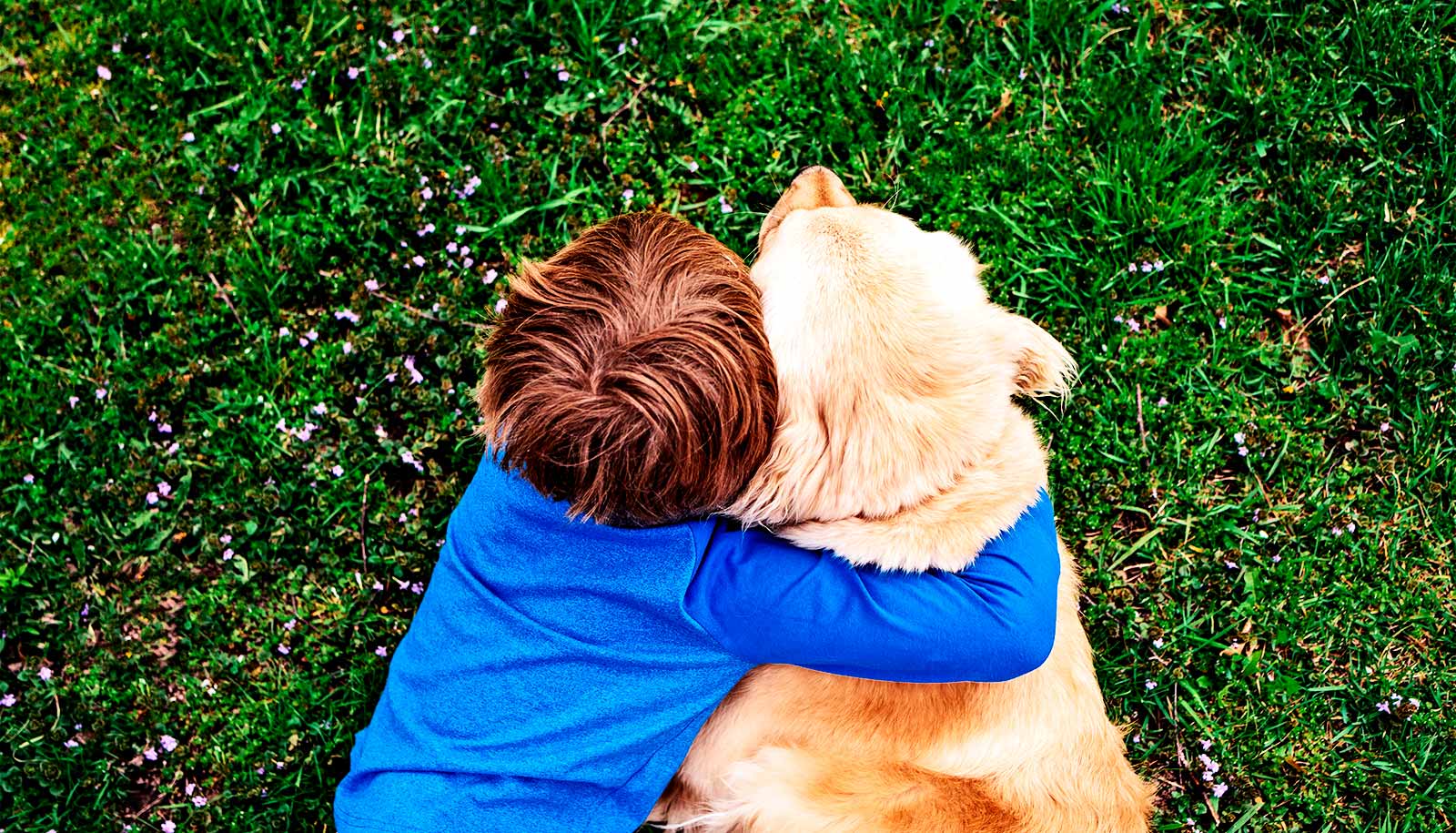Self-quarantine during the COVID-19 epidemic can lead to feelings of isolation—but dogs can offer welcome emotional support, an expert says.
In response to the COVID-19 pandemic, more and more people are practicing social distancing and self-quarantine—two measures experts call critical to slowing the spread of the novel coronavirus.
Even before COVID-19, some data suggested that Americans already experienced relatively poor social health. A 2018 study in International Psychogeriatrics found that three out of four Americans experience moderate to high levels of loneliness.
An estimated 17.3 million adults suffer from major depression, according to the latest National Institute of Mental Health data. Research also has shown that people who don’t feel connected to others are more likely to catch a cold, develop heart disease, have lower cognitive function, and live shorter lives.
Here, Evan MacLean, an assistant professor of anthropology and director of the Arizona Canine Cognition Center in the College of Social and Behavioral Sciences at the University of Arizona, explains how the company of dogs can ease negative mental health effects of limiting social interactions necessary to help “flatten the curve” and slow the spread of the virus. He notes that there is currently no evidence that household pets can contract or spread COVID-19.
What existing research in your field shows how dogs can provide comfort or reduce anxiety?
There are a good number of studies that suggest dogs can have a stress buffering effect on people going through challenging times.
We see this not only in terms of people’s perceived sense of well-being, but also in terms of physiological measures like heart rate, blood pressure, and cortisol—a hormone involved in stress responses.
Part of the effect is probably very similar to the support we get from our human friends and family, who can help us to weather the storm.
Dogs may provide that same kind of social support, as figures that will be beside us through thick and thin.
In a situation like this, how might walking one’s dog outside serve as a coping mechanism?
One thing we know is that sitting around worrying doesn’t do much good for our mental health. So, refocusing our mental energy on something positive, like playing with your pup or taking a walk together—exercise is also great for stress reduction—could bring welcome relief at a time like this.
Stick with a scenic walk and make sure you’re not visiting places like crowded dog parks where risks of disease transmission between people would likely be higher.
Does any of your research show that dogs have awareness of human emotion?
This is still a very actively researched question without a lot of concrete knowledge. We know dogs respond to many human emotions, but what exactly they tune in to, and whether and how they actually understand our emotions, is still debated.
But even if we can’t be sure exactly what they understand about our emotions, as highly social animals they will be tuned into cues about how we are feeling, which may, in turn, affect their own feelings and behavior.
A 2019 study revealed that dogs may synchronize their stress levels with ours. At a time like this, that seems particularly unfortunate. How can we ensure that our pets don’t take on undue stress?
Be sure to take little breaks here and there to just check in on and spend time with your dogs. For people working at home, we need little breaks in the day anyway, and this can be a great opportunity to take five, sit down with your dog, and just pet them gently.
If you think about synchronizing your breath and developing a soft and slow petting rhythm, I suspect that both you and your dog will be feeling relaxed in no time.
A recent viral tweet joked that dogs conspired to create coronavirus so that their humans would be forced to work from home. What do you think?
We’ve yet to find any evidence that dogs are a conspiratorial species.
Source: University of Arizona


